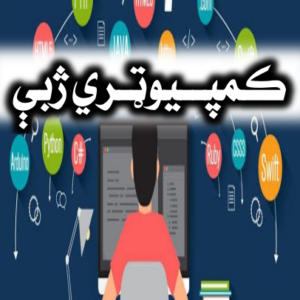About (اډوبي ایلسټریټر)Book: You can read short details of the book below. If you want to get for FREE please click on DOWNLOAD (اډوبي ایلسټریټر)button below, wait and it will start automatically.
Computing Education: Politics, Society and Computing
Computational learning
Computers have become an essential part of business, industry, trade and academic fields, so teachers and parents have started to consider the point that children should now acquire the basic knowledge of computers and overcome related skills. In this context, the term “computer education” was used to indicate that computer skills are now as important as traditional literacy and numeracy skills. Of course, there were already disagreements about the emphasis of the computer education curriculum. Some teachers, such as the Logo language engineer and computer scientist Seymour Papert, believe that students should understand (and be able to understand) the basic concepts of computers and should be able to write and appreciate the value of various types of computer programs. By understanding what computers can (and can’t) do, students will be able to think critically about how a machine can be used appropriately and not to its advantage. , to master only basic skills. Another is that if the student learns general principles well, then the ability to learn specialized skills will disappear.
On the other hand, the opposite view emphasizes the practical skills that most people (who don’t want to be programmers) need in their daily lives and work. This type of curriculum focuses on how a student knows the different parts of a computer and their functions, how to use popular applications such as word processors and spreadsheet applications and databases, how to use the Internet. Connect and use the services and so on. Computer education can also include the fact that a student must understand the effects that computers have on our daily lives and also understand the social issues that do not arise from the use of computers, such as security, privacy. , and inequality.
Currently, computer education is an important part of the school curriculum of every elementary and high school period, and most middle-class and high-income students today have access to computers in their homes, and thus outside of school. Gets qualified computer education. In addition, Zalmiyan educational and vocational schools also see computer skills as a key factor for advancement in work and career. Also, people have the opportunity to learn by themselves with the help of books and videos.
Approaches to computer-based learning may vary from community to community based on resources and background. For example, educational programs designed for young people in developed countries can take advantage of the fact that the people of these countries still have considerable experience in using computers and related devices, such as game consoles and music or video devices. Conversely, educational programs designed for a poor or minority community should consider the possibility that the population of this community may have had little access to computers. Similarly, programs in poor and developing countries may focus first on providing basic infrastructure, such as the “one laptop per student” movement.
Tags:






Reviews
There are no reviews yet.